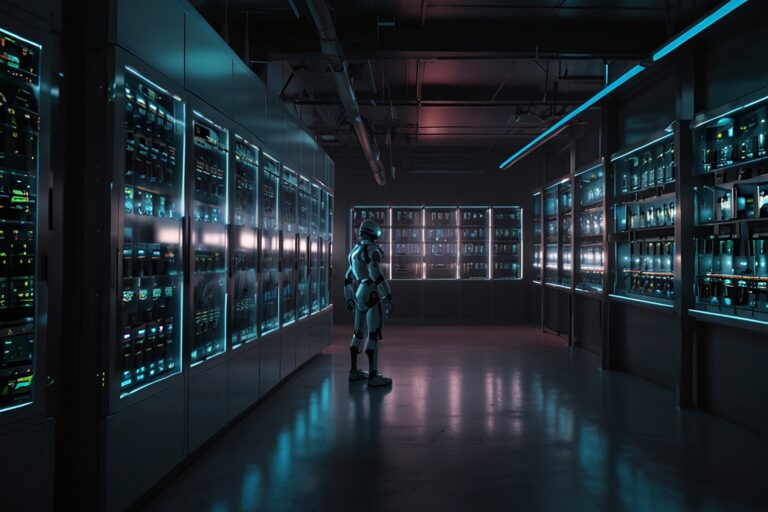
TL;DR
- ChatGPT suffered a partial outage on June 10, 2025.
- The disruption impacted ChatGPT, the Sora video generator, and OpenAI’s developer API.
- At peak, nearly 2,000 error reports were logged by Downdetector.
- OpenAI says it is seeing gradual recovery, but full service restoration may take hours.
- The issue comes amid rising workplace and educational reliance on generative AI tools.
ChatGPT Goes Down, Triggering Panic Among Users
On Tuesday, June 10, popular generative AI platform ChatGPT experienced a partial outage, temporarily disrupting the productivity of thousands of users worldwide. The degradation affected not just the chatbot itself but also related OpenAI services including its developer API and Sora, the company’s high-profile AI video generation tool.
The outage began in the early morning hours. According to OpenAI’s status page, engineers started investigating performance issues as early as 2:36 a.m. ET. Error reports began spiking around 5:30 a.m., per data tracked by Downdetector.
By midday, the issue had not been fully resolved, although OpenAI said it was seeing progressive recovery.
Error Reports Spike As Developers and Users Scramble
Downdetector, a website that tracks outages across major digital platforms, showed a sharp spike in reports related to OpenAI’s services. At its peak, nearly 2,000 users flagged issues with ChatGPT.
Affected services included:
- ChatGPT
- OpenAI API for developers
- Sora, OpenAI’s AI-driven video generator
This outage impacted both paid and free users, with no clear pattern in which subscription tiers were most affected.
Data Callout Box
| Affected Service | Time Outage Began (ET) | Peak Reports (Downdetector) | Status Update |
| ChatGPT | 2:36 a.m. | ~2,000 | “Observing elevated error rates and latency” |
| Sora | ~3:00 a.m. | Included in broader outage | Experiencing degraded performance |
| OpenAI API | ~3:30 a.m. | Developer reports on forums | Partial recovery observed |
| Downdetector | N/A | Data collection source | Graph showed peak around 5:30 a.m. ET |
OpenAI Responds with Live Updates
OpenAI issued a public post on X (formerly Twitter), stating they were “observing elevated error rates and latency across ChatGPT” and had already “identified the root cause.” The company assured users that it was working quickly to resolve the issue.
When CNN reached out for a statement, OpenAI directed them to its status page and social media updates for real-time information.
By 11:00 a.m. ET, ChatGPT appeared operational when tested, but performance remained inconsistent throughout the early afternoon.
The Office Feels the Impact
The outage affected not only casual users but also professionals increasingly reliant on generative AI tools for daily workflows. Platforms like Glassdoor have tracked a doubling of ChatGPT usage in professional settings within just a year.
Employees took to social media to joke about their AI assistant going offline:
“ChatGPT is down… Which means I actually have to type out my own emails at work. Send prayers,” one X post read.
The disruption highlights how embedded generative AI has become in enterprise environments. With AI tools integrated into everything from email drafting to data visualization, even a brief outage can impact team productivity, client interactions, and development pipelines.
Classroom Tools Also Hit
The educational space has also felt the ripple effect. According to Pew Research, 26% of U.S. teens now use ChatGPT for schoolwork—up from 13% in 2023. With students increasingly dependent on AI for tutoring, assignments, and brainstorming, unexpected outages can derail academic timelines, especially as summer courses ramp up.
A Broader Trend in Tech Reliability
The ChatGPT outage follows a series of high-profile tech service disruptions in 2025. Earlier this year, platforms like Zoom and X also experienced temporary downtime, raising concerns about over-dependence on centralized platforms.
Industry analysts argue that as more critical infrastructure shifts to cloud-based AI, service reliability and disaster recovery plans will become central to tech governance.
“It’s not just about uptime anymore,” said a cloud security consultant on LinkedIn. “It’s about the entire productivity ecosystem grinding to a halt when one node fails.”
What This Means for the Future
Tuesday’s incident underscores a broader truth: AI tools are no longer experimental—they’re essential. Whether in classrooms, offices, or content studios, disruptions to platforms like ChatGPT are now felt at scale.
As OpenAI continues to grow its product suite—from Sora to GPT-5 rumors—the stakes for service reliability will only rise. Users may begin demanding offline fallback options, status integrations, and real-time error tracking within platforms to minimize risk.
Conclusion: A Warning Bell for AI Infrastructure
The June 10 outage was relatively brief, but it exposed the critical role AI plays in modern productivity. As OpenAI and similar firms expand their ecosystems, even temporary service disruptions can reverberate across entire sectors. Tuesday’s glitch is unlikely to dent ChatGPT’s popularity, but it serves as a stark reminder: with AI becoming the digital backbone of modern work, resiliency is just as important as innovation.





